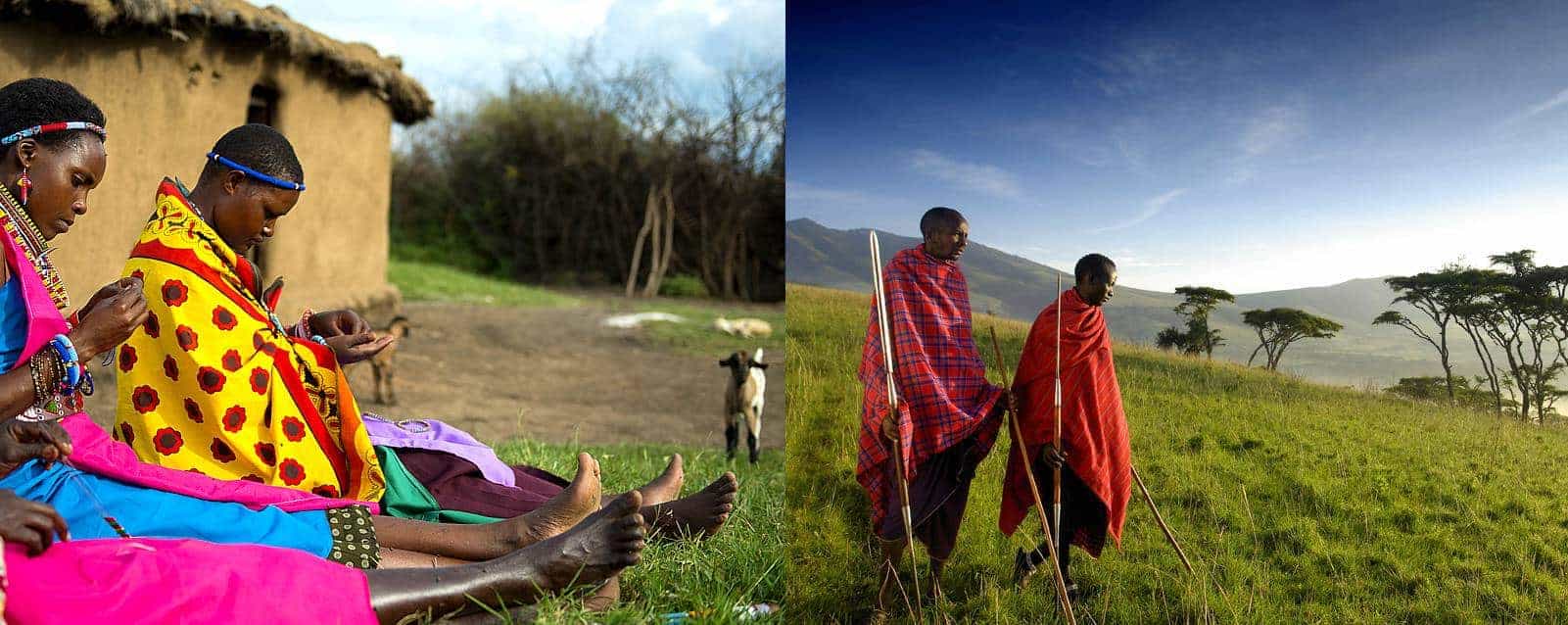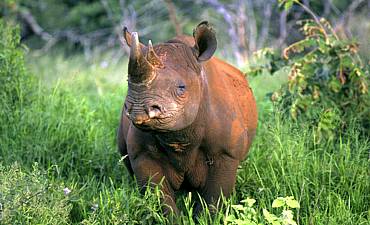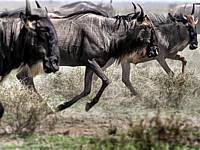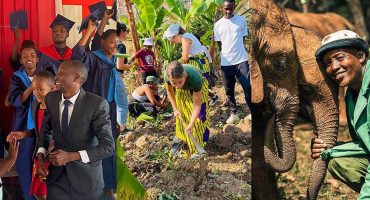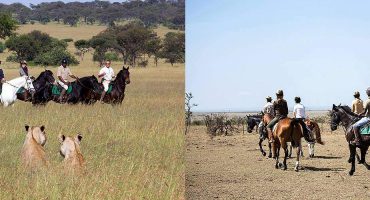GUIDE FOR CULTURAL SAFARIS IN TANZANIA WITH AFRICANMECCA
Learn More On AfricanMecca Safari Tier Ratings & Experiences
READ MORE ON TRAVEL GUIDE FOR TANZANIAAt AfricanMecca, we believe the cultural diversity of Tanzania is one of its greatest strengths. By meeting and understanding people whose views and values are very different from your own, you acquire new insights and perspectives that change your attitudes towards them, towards yourself and towards the entire world. This new depth of perception and wisdom opens new horizons, opportunities and flexibility in your future life choices. You may travel to Africa to learn more about her wildlife, but through her people, you will learn more about yourself. This may well be a most valuable and lasting aspect of your safari of the tribal people of Tanzania.
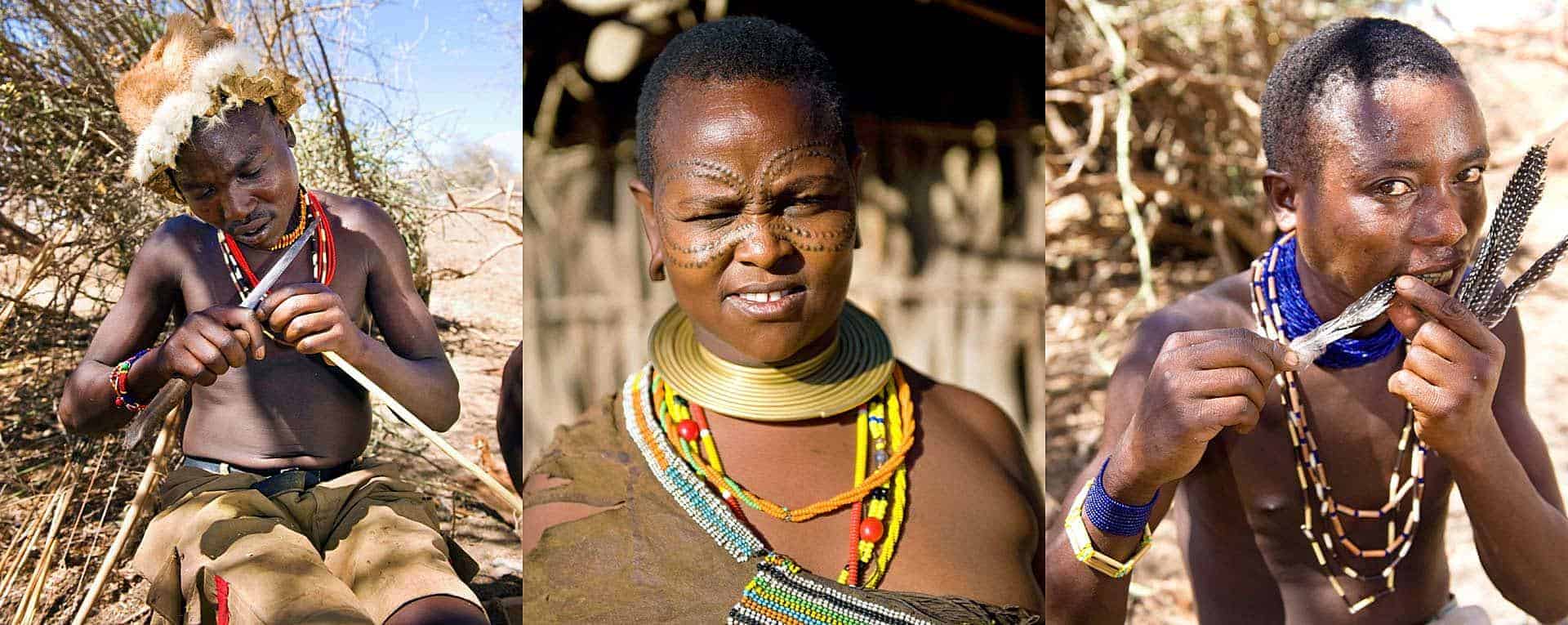
There are more than 120 different ethnic groups in Tanzania that have migrated over many centuries: pastoralist Nilotic from the Sudan, nomadic, cattle-herding Cushites from Ethiopia, hunter-gatherer Khoisan from the Kalahari, agriculturalist metal-working Bantu from West Africa, and Arabian, Indian and Anglo immigrants. All these groups displaced, conquered or assimilated each other over thousands of years to form the present Tanzanian population. Each of these groups had differentiated traditional religions, social practices, rituals, customs, art, music and dance.
The tribal communities of Tanzania wish to preserve and protect its individual identity and to pass on to its children the values that have preserved it throughout generations. Many levels of experience are available on a cultural tour of Africa, in many different communities, from visiting carefully restored historical sites and settlements to staying in venues designed to represent tribal and colonial fantasies, or spending time on real-time projects where ethnic skills and crafts are recycled in the context of our shared, everyday world.
Spiritual and life-affirming encounters benefit visitors on an awakening tour in Eastern Africa, and local communities in a mutually uplifting shared time. AfricanMecca Safaris can help you plan the best possible outcome of the meeting of different worlds at the level of culturally aware interaction and authenticity you desire, in collaboration with diverse local tribes for a sensitive, mutually respectful, and rewarding Tanzanian ethnic vacation experience. Visit the motherland with AfricanMecca to enlighten yourself with the greater world beyond your comfort zone.
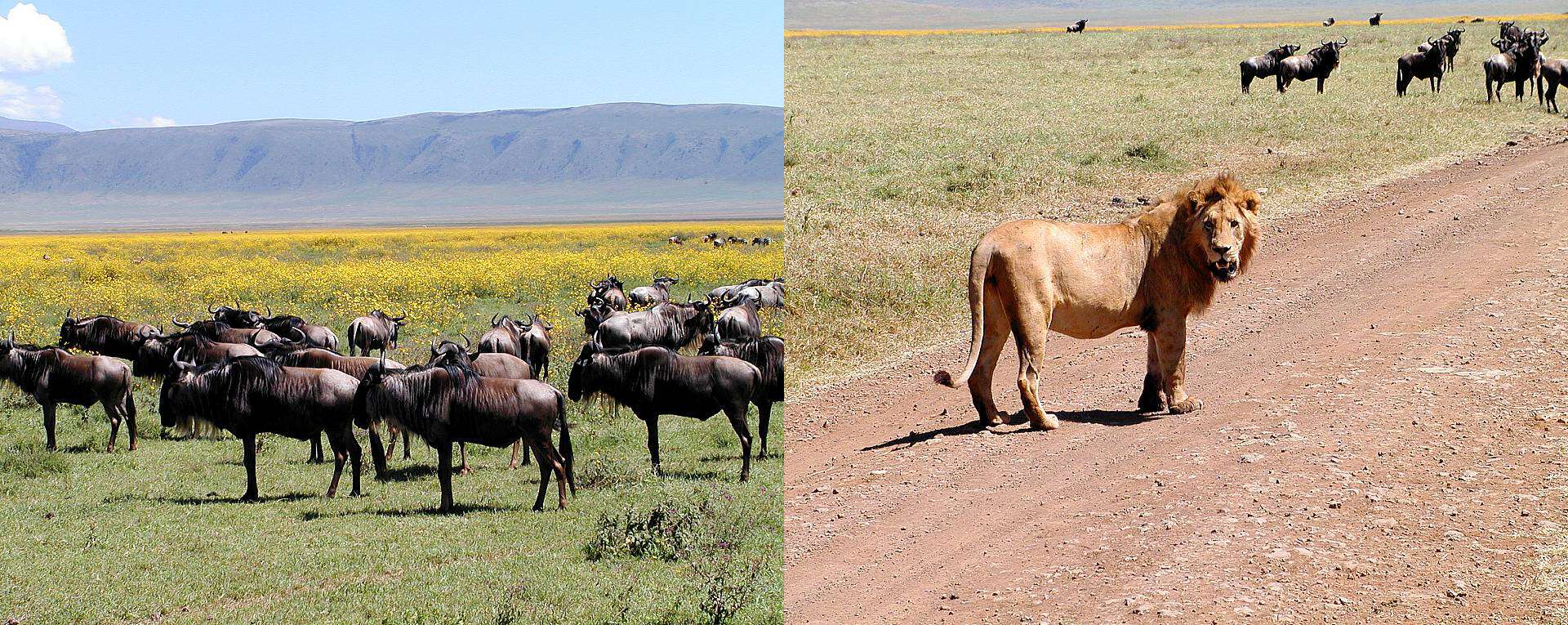
Learn More About The Distinct Tribes Of Tanzania
1. Maasai Tribe
According to oral history, the Maasai people are a fusion of North Africans and Nilotic tribe originating from the northern part of Turkana lake in Kenya, which they left in the 15th century, then moving south and into present day Tanzania over 200 years ago, when they displaced other tribes in order to claim rich pastureland for their cattle. A race in which warriors were the highest class and their religion claimed all cattle as theirs by gift of God, they righteously annexed all the cows they encountered.A proud, charming, friendly and intelligent community, there are now a million Maasai living in the homelands of Tanzania and Kenya. Much of their tribal land has been absorbed into the National Parks in return for promises of cultural security and community wellbeing in surrounding reserves which have not always been kept.
In accommodating the inevitable, some have embraced the Tanzanian tourist industry, becoming the guides, guards, staff and management of many of the new eco-tourist centers and cooperating in the conservation of the wildlife that attract their clientele. Some own the land, camps, and lodges whilst others initiate self-help projects to supply foodstuffs, furniture, curios and craft items in return for assistance with education, health and community development. They also present their cultural heritage as a valuable commodity.
This can be done in a superficial way, as ethnic entertainment, presenting a popular tourist conception of red-robed Maasai warriors, leaping and drumming, singing and dancing as a touring concert party, or as a deeply felt collaborative project in which the past, present and future are confronted in an authentic setting by real people. AfricanMecca procures the latter experience at all times.
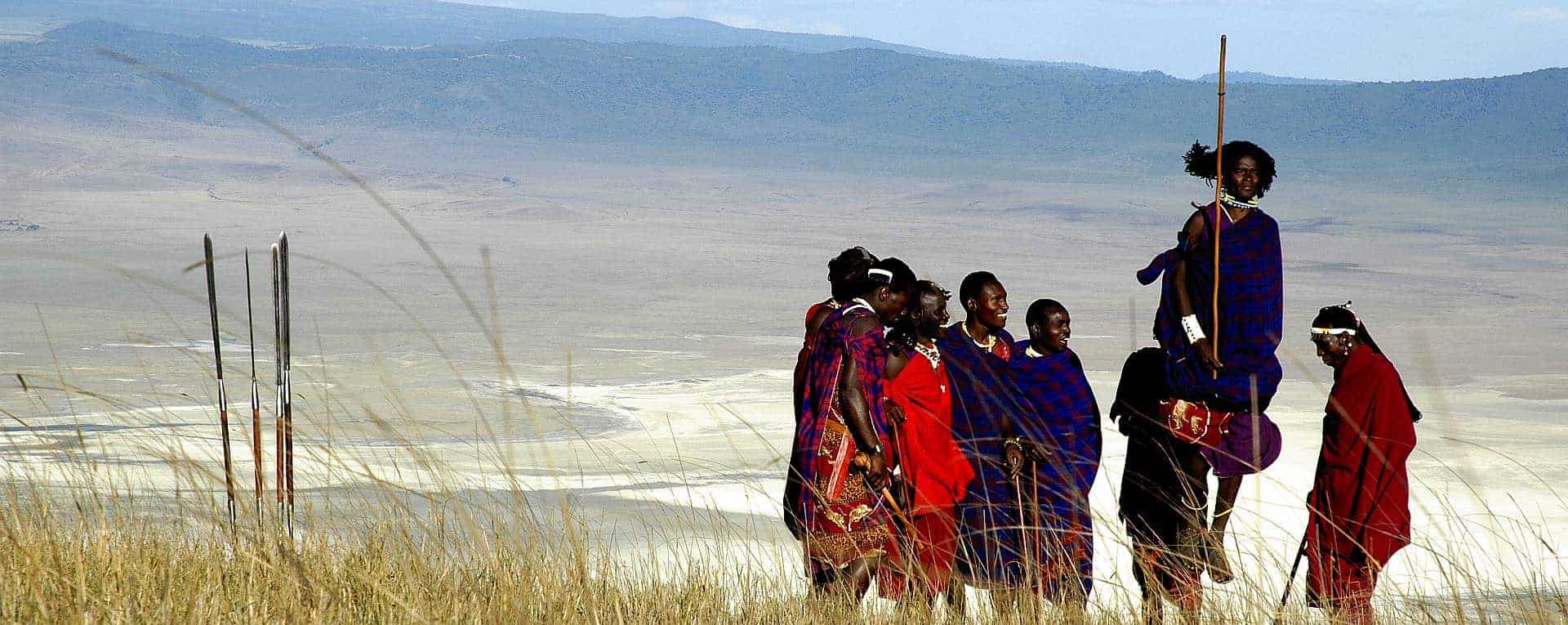
2. Hadzabe Tribe
The Hadzabe are the original Tanzanian Bushmen with a Khoisan language of clicks. These primitive hunter-gatherers lived in valley caves of Lake Eyasi in harmony with nature for over 10,000 years. There are now just less than 1000 of them left. The advent of the neighboring Datoga tribe and the development of national government together with climate change, tourism and commercial hunting, has resulted in the gradual destruction of their environment and their way of life, but their isolation has protected them from many modern diseases.They usually get sick with malaria and yellow fever from mosquitoes or sleeping sickness from tsetse fly. They are a pride but also an embarrassment to a modern nation for its failure to progressively uplift the declining community from extinction, but out of respect for their chosen way of life, they are now the only people permitted to hunt with bows and arrows in the Lake Eyasi area.
They live without a safety net, gathering the food they need day by day. They have no concept of religion or afterlife, nor of time beyond the phases of the moon. They live in collaborative groups with no social rules. Men hunt bushmeat while the women search for fruit, tubers and other wild food. They sleep in an organic mini-dome housing made of our natural branches while others prefer caves or lie head to tail around a campfire. Life is ephemeral. You need not hunt baboon or a dik dik, half naked with a bow and arrow to appreciate the Hadza way of life, but you can if you wish. Time spent “living in the now” on a Lake Eyasi cultural safari that confers calmness, centeredness and courage.
3. Datoga Tribe
Like the Maasai, the Datoga were nomadic cattle herders but are now subsistence farmers, growing beans, maize and millet to augment their sheep, goats, cows and chickens rearing. Consequently, they are dependent on permanent water sources and are adversely affected by increasing drought. A Nilotic people, like the Maasai, their patched leather tunics blend with the landscape.They wear collars and bracelets of beads and brass and tattoo circles around their eyes. They are polygamous, ruled by a council of elders, and are aggressive, adversely affecting Hadzabe and Iraqw neighbors, and sometimes refuse to cooperate fully with the government. Their attitude deters sympathy for their plight. They live in mud huts in stockaded cattle enclosures.
All parts of their animals are used, and they grow and kill only what they need, being reluctant to trade. Yet, like the Maasai, despite their fierce warrior reputation, they are paradoxically friendly, welcoming and happy to share their cultural traditions with guests on an East African safari. They look down on the Hadzabe, often preventing Hadza women from taking water at waterholes until the Datoga cattle have finished drinking.
Like the Hadzabe, they claim to be the oldest Tanzanian people, with a 10,000-year old culture, but they came from Ethiopia about 3,000 years ago to settle around Lake Manyara and Eyasi. They resist development and education, have high infant mortality, and are seen by other tribes as primitive, disapproved and disenfranchised. Less than 7% speak the national language, Kiswahili.
4. Sukuma Tribe
The Sukuma people of the north are cattle herders and farmers. A Bantu people, originating in present day Uganda reaching north-western Tanzania via the Congo into Burundi and Rwanda, over 8 million Sukuma now comprise the largest ethnic group in Tanzania, forming a sixth of the total population. Most have become assimilated into the towns and cities, embracing Western dress and culture in place of traditional skins or the colorful Kanga cloths and Kitenge dresses they have adopted in more rural areas.All speak various Bantu dialects and Kiswahili. Some have converted to the Christian and Islamic faiths while the rest share many different traditional beliefs, often worshipping ancestors and sacrificing to them to ensure family health and prosperity. Although there is a folk museum (Bujora Cultural Center) in Mwanza, much of their traditional culture has been dwindling, except for the dance competitions which are held in villages throughout the months from May to September.
Older people still believe in the power to talk to the ancestors and predict the future, which is held by clan chiefs and other wise men distinguished by ritual cicatrices on their arms. Both men and women now work in the towns and cities and in industry as doctors, lawyers, engineers, business people and miners, but women still maintain their family roles as homemakers. Villages were once efficiently run by chiefs and elders on communal lines with most families partaking in decision-making.
Now they face increasing problems as their youth depart for the cities. They are struggling to preserve their cultural heritage and to ensure adequate education and health care for their children. Rural women still fetch water, tend gardens and cook for their families while rural men are farmers, vital to the economic wellbeing of the nation. Traditional dishes are still made from cornmeal ugali served with relish made from green vegetables from spinach, green peas to cabbage, or pumpkin leaves, making a cheap meal which is supplemented with fish, beef or goat meat on special occasions. There is yoghurt or fermented milk to drink, or beer, which is indispensable on social occasions.
5. Iraqw Tribe
The Iraqw migrated to Tanzania from Mesopotamia, via Palestine and Egypt, Ethiopia and Kenya. As they moved, they adapted to many different circumstances, finally being driven by the Datoga from northern Tanzania but still harassed by the Maasai as a result of which they resorted to living underground with their remaining herds. The Iraqw are a statuesque, immobile people, private and traditionalist, but they have also largely lost their songs and ceremonies. Cultural identity depends on reclaiming their music, dance and arts, and rebuilding their self-respect as valuable contributors to a multi-ethnic, multi-national cosmopolitan society in Tanzania.Social change is rapid and extreme with friction caused in family groups by differences in religious and cultural practices, often noticeable at weddings when a group of older women sing ritual blessings in Iraqw whilst a Christian church choir tries to drown them out with hymns in Swahili. One group of guests sits in the courtyard, drinking home brew, and eating maize and beans, whilst another clique dines in style indoors on processed meats and bottled alcohol.
AfricanMecca Safaris are committed to the model of ethnic presentation as a self-financing tourist service which also meets the goals of a local community and is particularly suitable in circumstances like these. Older Iraqw are criticized as rigid traditionalists sticking to inter-generational taboos, whilst modern young people embrace cosmopolitan values. However, they are all becoming more involved in contemporary issues through their concern for maendeleo, or progress and advancement.
6. Swahili Tribe
For over 2,000 years, the East African Coast has been the focus of trade and exchange of ideas and intermarriage between Africa and Arabia, which resulted in the formation of the Swahili culture, rich in art, commodities and architecture to produce the flamboyant, musical Shirazi who claim Persian origin. There was a vibrant city-based civilization taking inspiration from China, Persia, Greece and Rome before the Arabs brought Islam in the seventh century.The Kiswahili language was the primary language of trade. Now one of the top 10 international languages, it has been adopted as the Tanzanian national language in order to unite the many different ethnic groups who shared between them over 120 different tongues and dialects. Arab merchants married Bantu women, consolidating a bridge between disparate races, cultures and religions. The predominant religion is Islam, often combined with remnants of older cultural practices and superstitions. Historically, the Kiswahili language and culture demonstrates links back to the Sumerians of 8,000 years ago and the Assyrians 3,000 years later who developed such an advanced culture in the valley of the rivers Tigris and Euphrates that they are credited with the earliest use of writing.
The Cushitic people who occupied the East African coast intermarried with the Bantu and later incomers, not only Arabs, but Indian, Portuguese and other Asian traders to give rise to a people combining the wisdom of Islam with the business acumen of the merchants and the zest for life of the indigenous Africans. For the Swahili people, an orthodox form of Islam rules their daily life in a good, peaceful way. Eid-al-Fitr at the end of the Ramadan fast is celebrated countrywide and also Eid-al-Adha where many Swahilis make pilgrimages to Mecca.
They wear traditional garments such as the man´s long cotton throbe (khanzu) and the woman`s modesty hijab (bui bui) which covers the entire body except the face and hands. Divination and homeopathic medicine may be practiced by teachers of Islam through Qur'anic and Hadith readings that also feature in protective necklaces for children. Belief in jinn, supernatural creatures from an invisible parallel world who may interact with humans for good or ill, and angels, is also a strong feature in Swahili spiritual life. Today, the Swahili people are found throughout the mainland and coasts of Kenya and Tanzania as well as on Zanzibar, Lamu, Mombasa, Mafia, Pemba and other islands in the Indian Ocean.
Select Your Preferred Tanzania Trip Idea Experiences
1. Safari Trip Ideas
2. Beach Trip Ideas
3. Mountain Trip Ideas
4. Itinerary Trip Ideas
Select Our Highly Recommended & Unique Designed Tanzania Safaris That You Want To Tour Experience
TANZANIA SAFARI PRICES
Read More +
WILDLIFE SAFARIS IN TANZANIA
What do you want from your dream safari in Tanzania? Beautiful scenery? Fantastic wildlife? The ultimate freedom of returning to primeval forests, soaring mountains, timeless lakes, endless plains?
Read More +
CUSTOM & PRIVATE SAFARIS
The best way to ensure a discerning safari in Tanzania is to engage AfricanMecca in organizing a customized tour, tailor-made with an option of a private guide and exclusive transport just for you.
Read More +
HONEYMOON SAFARIS IN TANZANIA
AfricanMecca has the bespoke expertise and experience in hand-picking small, romantic accommodations in pristine safari destinations that results in superlative dream honeymoon safaris of Tanzania.
Read More +
FAMILY SAFARIS IN TANZANIA
A family safari binds you together in shared gratitude and wonder. Parents and grandparents sharing a Tanzanian wildlife and cultural safari with their generational children is an enriching experience.
Read More +
LUXURY SAFARIS IN TANZANIA
The supreme safari luxuries of Tanzanian wilderness experiences are never to be forgotten self-indulgence on a spectacular scale. Each rustically boutique camp offers something differently richer.
Read More +
PHOTO SAFARIS IN TANZANIA
An AfricanMecca photography safari in Tanzania puts you in the care of a hand-picked photographic instructor so that you will learn how to get the very best out of your camera during your game drives.
Read More +
CULTURAL SAFARIS IN TANZANIA
We believe the cultural diversity of Tanzania is one of its greatest strengths. By meeting and understanding people whose views and values are very different from your own, you acquire new insights.
Read More +
CHIMPANZEE SAFARIS IN TANZANIA
The most popular primate safaris in Tanzania with AfricanMecca are in Gombe and Mahale, sites of intensive studies of chimpanzees, mankind’s closest living genetic kin with 95-98% of DNA in common.
Read More +
WALKING SAFARIS IN TANZANIA
Walking safaris in Tanzania embraces you with the landscape and the wildlife, disturbing it as little as possible, and becoming just another animal, alert and aware of every nuance of wilderness.
Read More +
BIRDING SAFARIS IN TANZANIA
Tanzania is one of the best bird watching destinations in Africa, with over 900 resident species and 200 migrants present. Birding is best in the rains for migrants and residents in breeding plumage.
Read More +
HORSEBACK SAFARIS IN TANZANIA
Horse riding safaris in Tanzania are conducted in private wildernesses, yet it is a distinct way to immerse yourself with the pristine landscape, diverse wildlife, fauna, and the indigenous people.
Read More +
BALLOON SAFARI IN TANZANIA
A balloon safari in Tanzania is a fantastic once in a lifetime experience, particularly suitable for a bird's eye-view game viewing experience on your wildlife tour in Serengeti and Tarangire.
Read More +
WEDDING SAFARIS IN TANZANIA
The awesome beauty of Tanzania offers many venues for a dream wedding. Have your bridal vows in the bush with nature's bounty all around. Confess with AfricanMecca Safaris to make every dream come true.
Read More +
TANZANIA BUSH & BEACH SAFARIS
Tanzania is a spectacularly salient country with varied landscapes and ecological diversity of flora and fauna, from avian, terrestrial to marine, coupled with castaway experiences on soothing turquoise shores.
CONTACT AND TALK TO OUR SAFARI EXPERTS TODAY TO KICK-START YOUR TOUR PLANNING PROCESS
Request Tanzania Custom Or Tailor-Made Safari Pricing Based On Your Specific Travel Dates At Your Preferred Safari Tier Camp Or Lodge
CONTACT AN EXPERT ON TANZANIA SAFARI PRICES & TOURSRead More +
SAFARI PRICES FOR TANZANIA
Review Tanzania detailed itineraries and prices of our recommended safaris with the option of customizing your Africa tour based on your preferences and needs.
Read More +
AFRICA TRIP IDEAS FOR TANZANIA
Review experiences available in Tanzania from photo wildlife safari, chimpanzee tour, bush walk, family to honeymoon beach vacation, snorkeling, diving etc.
Read More +
PARKS & RESERVES IN TANZANIA
Review information on wildlife parks and reserves in Tanzania i.e. Serengeti, Ngorongoro, Tarangire, Ruaha, Manyara, Selous, Katavi Gombe, Mahale and more.
Read More +
ACCOMMODATIONS IN TANZANIA
Review information on safari camps, lodges, city hotels, beachfront resorts in Tanzania's pristine wilderness, cities, Swahili coastal shores and idyllic islands.
Read More +
BEST TIME TO VISIT TANZANIA
Review details on the best time to go to Tanzania to visit its various wildlife outback, lakes, rivers, beaches, islands, mountains, forests and other wildernesses.
Read More +
BEACHES & ISLANDS OF TANZANIA
Review Tanzania's unspoiled white, sandy coastal beaches and idyllic islands backed by tropical forests that are lapped by the azure waters of the Indian Ocean.
Read More +
TANZANIA COUNTRY PROFILE
Review country information and travel tips on Tanzania i.e. climate, history, geography, culture, entry requirements, what to pack and wear, tipping guide and more.
Read More +
CITY DAY TOURS FOR TANZANIA
Review city tour recommendations on full or half day options in Dar es Salaam, Arusha, Zanzibar. Experiences can be customized around your vacation travels.
Read More +
AFRICAN SAFARI PRICES
Check out safari prices and itineraries for parks and reserves in other African countries e.g. Kenya, Uganda, Rwanda, Botswana, South Africa, Zambia etc. Namibia, Mozambique, Malawi and Zimbabwe are available on request.
AFRICANMECCA REVIEWS
What are our Customers saying about us? READ MORE REVIEWS![]()
AfricanMecca's professionalism and care understands that what distinguishes Africa is its authenticity, the land, people and wildlife who do not share our world of fashion and fanfare that distinguish so many travel companies today.
Cyril Christo & Marie Wilkinson, Conservation Photographers, Authors & Wildlife Documentary Producers - USA
Jambo Raza, We all had a fantastic time on our Tanzania safari. Accommodations were excellent and we loved our guide - Rodgers. We will definitely recommend this safari to others. Thanks for all your help making the arrangements.
Dr Thomas Davis, Methodist Hospital, Minnesota, United States
AfricanMecca Safaris created a remarkable honeymoon tailored to our interests and desires. The quality of service and delivery of experience was unsurpassed. I highly recommend AfricanMecca Safaris to honeymooners, families, or any traveler.
Noorin & Jason Nelson - Maryland, United States
Thanks again to you for arranging a wonderful trip for us. Everything was great from the fantastic wildlife, the scenery, the people, the accommodations and the food. The safari was everything we had hoped for.
Liz and Gunnar Kristiansen - Ontario, Canada
I booked my safari holiday through AfricanMecca. They were the most helpful company I have ever dealt with and I work within the travel industry. I had the most amazing time. The holiday went as clockwork with no hitches anywhere.
Shelley Roberts - Hemel Hempstead, United Kingdom
We have returned from our African adventure and would like to thank you very much for your part in making this such a wonderful experience. We were lucky enough to time the Great Migration from the Serengeti, which was amazing.
Denise Paterson - Belmont, Australia
We had an absolutely amazing trip in Arusha, Serengeti and Gombe - everything went smooth as silk. Thank you so much Raza for making this trip, the trip of a lifetime. We had an absolutely brilliant time.
Tiffany Heitz & Lesley Smith - California, United States
EAST AFRICA SAFARI BOOKING & TOUR HOLIDAY IDEA TANZANIA
When visiting Tanzania, we recommend combining your safari to Serengeti, Ngorongoro Crater, Tarangire and Lake Manyara. You can also day trek or climb the highest mountain in Africa - Kilimanjaro.
You may optionally extend out to Southern or Western parks like Nyerere (Selous), Ruaha, Katavi or Mahale - Gombe ending with a beach vacation and Swahili cultural tour in the exotic spice island of Zanzibar, Pemba, Mafia or Fanjove.
TRAVEL PLANNING GUIDE FOR TANZANIA
Kickstart Your Safari Planning
ARE YOU PLANNING TO BOOK AN AFRICAN SAFARI TO TANZANIA?
Do You Need Knowledgeable, Experienced & Specialist Guidance For Your Travels In Tanzania? Let Us Help Plan Your Trip Itinerary Correctly
CONTACT A TANZANIA VACATION EXPERTEXPLORE MORE ON NATIONAL PARKS, CAMPS, LODGES, BEACHES & RESORTS IN TANZANIA
HAVE YOU VISITED EASTERN AFRICA FOR A SAFARI IN TANZANIA?
Write A Travel Or Tourist Trip Review To Share Your Experiences
WRITE TANZANIA TRIP REVIEWAMS BLOG
VIEW ALL -- 24 December 2024 by AfricanMecca Safaris, in Blog For AfricanMecca Safaris,Safari Planning Blog Posts - AfricanMecca Safaris
What AfricanMecca Accomplished In 2024
What AfricanMecca Accomplished In 2024 Published By AfricanMecca Safaris | Blog ...READ MORE + - 26 October 2017 by AfricanMecca Safaris, in Blog For AfricanMecca Safaris,Safari Planning Blog Posts - AfricanMecca Safaris
Baggage Guidance, Flight Shuttle Service & Restrictions On Flying Safaris In Africa
Baggage Guidance, Flight Shuttle Service & Restrictions On Flying Safaris In...READ MORE + - 07 June 2017 by AfricanMecca Safaris, in Blog For AfricanMecca Safaris,Latest Kenya Blog Posts From AfricanMecca Safaris,Safari Planning Blog Posts - AfricanMecca Safaris
Masai Mara Horseback Riding Safari In Kenya With AfricanMecca
Masai Mara Horseback Riding Safari In Kenya Published By AfricanMecca Safaris | ...READ MORE +

